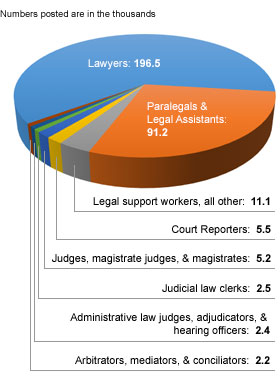Several colleges, universities and technical schools offer online programs for potential police officers and detectives. (5-6) These programs are designed to train students to enforce laws, patrol areas and conduct traffic stops, investigate crimes, collect evidence and testify in court. Any need for public safety would likely spark a job increase in this field and lucrative incomes. (1, 4)
How to Become a Police Officer or Detective
While only a high school diploma and academy training are generally required to work as a police officer or detective, ONet Online noted that 37 percent of the work force completed a college education in 2010. (1, 4) Online degree programs in criminal justice with a specialization in police administration, law enforcement or police studies are available at the associate’s and bachelor’s degree levels. These programs – which typically are offered in a blended format – examine criminal law, legal traditions, civil rights, laws and police ethics. Hands-on training — through a capstone course and weekend training sessions – delves into emergency response, first aid, firearms and self-defense techniques. (5-7) Typical additional requirements for police officers and detectives include being 21 years old or older and a U.S. citizen, as well as meeting physical and psychological tests and having a driver’s license. (1)
Careers Available
According to the Bureau of Labor Statistics (BLS), police and detectives held more than 780,000 jobs in 2012. (1) These professionals may have several different career titles, including: (1)
- State Police Officers
- Uniformed Police Officers
- Transit Police Officers
- Border Patrol Officers
- Sheriffs
- Criminal Investigators
- Fish and Game Wardens
Salary
From 2012-2022, the BLS projected that police and detectives would see a slower than average growth of five percent. The best opportunities are projected to be for those with a bachelor’s degree and investigative experience stated the BLS. Additionally, those working as police and sheriff’s patrol officers had slightly higher growth that decade, at six percent. (1)
In May 2013, police and sheriff’s patrol officers had a mean annual income of $58,720, stated the BLS. (2) Those that worked as detectives and criminal investigators had higher mean wages that year, at $79,030. (3) The industries with the highest levels of employment for both fields were local, state and federal government, according to the BLS. (2, 3)
Work Life
Police and detectives work under stressful, sometimes dangerous situations, including traffic accidents, homicides and natural disasters. They may work outdoors in inclement weather, and much of their day may be spent traveling. According to the BLS, these workers have one of the highest rates of injuries, and may face physical injury when apprehending suspects and during motor-vehicle pursuits. Work is generally full-time, and night, weekend and holiday work may be essential. (1, 5, 6, 7)
Citation
1. Bureau of Labor Statistics, U.S. Department of Labor, Occupational Outlook Handbook, 2014-15 Edition, Police and Detectives, on the Internet at http://www.bls.gov/ooh/protective-service/police-and-detectives.htm#tab-6 (visited October 20, 2014).
2. Bureau of Labor Statistics, U.S. Department of Labor, Occupational Employment Statistics, 2014-15 Edition, Occupational Employment and Wages, May 2013, on the Internet at http://www.bls.gov/OES/current/oes333051.htm (visited October 20, 2014).
3. Bureau of Labor Statistics, U.S. Department of Labor, Occupational Employment Statistics, 2014-15 Edition, Occupational Employment and Wages, May 2013, on the Internet at http://www.bls.gov/oes/CURRENT/oes333021.htm (visited October 20, 2014).
4. ONet Online, Police Detectives, on the Internet at http://www.onetonline.org/link/summary/33-3021.01 (visited October 13, 2014).
5. Southern New Hampshire University, BS in Criminal Justice, on the Internet at http://www.snhu.edu/online-degrees/undergraduate-degrees/justice-studies-BS-online/police-law-enforcement.asp (visited October 20, 2014).
6. Ramussen College, Associate’s Degree in Law Enforcement, on the Internet at http://www.pace.edu/lubin/public-accounting-bba (visited October 20, 2014).
7. EKU, Police Studies, on the Internet at http://www.plsonline.eku.edu/ (visited October 20, 2014).
